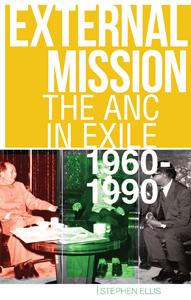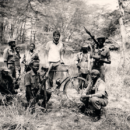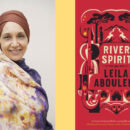What if Ocampo Indicts Bashir? 8
The ICC’s Chief Prosecutor would surely agree that the mediators of peace agreements need to be attentive to the requirements of justice. However, in the complex ethical battleground of twenty-first century armed conflict, there is also a strong case to be made that the standard-bearers of justice take account of the requirements of peacemaking.
In the event that an indictment of President Bashir by the ICC is a real possibility, I would like to outline some key conflict resolution considerations that the Prosecutor’s office could take on board, drawing on findings of Conciliation Resources’ recent Accord publication: Powers of persuasion: incentives, sanctions and conditionality in peace processes.
The first question concerns how the course of action would affect ongoing conflict dynamics in Sudan and the wider region, both in the short and longer-term. Is the indictment likely to act as a deterrent and contribute to the de-escalation of hostilities, or will it be a trigger for renewed violence? Clues may be found in the target’s history of responses to international sanctions, and answers are likely to be determined by the target’s ideological, strategic and personal goals.
Stepping back from the likely impact on the target’s individual behaviour, it would also be useful to consider how such an action is likely to affect the behaviour of his allies and wider public constituency, but just as crucially, the behaviour of his opponents. Recent experiences from the Sri Lankan and Georgian-Abkhaz contexts, for example, suggest that punitive international action can often entrench the symbolic politics of conflict if not conceived with reference to a wider peacemaking strategy.
The second question to consider is how the indictment will affect peacemaking dynamics. This is a particularly complex matter in the context of Sudan, which is at once in the fragile post-settlement phase of implementing the Comprehensive Peace Agreement and also in the fraught pre-settlement phase with respect to the conflict in Darfur. Again, it is important to consider how the ICC indictment will affect the various parties’ motivations to engage in peacemaking, whether this concerns the quest to establish pre-conditions for talks or negotiate an obstacle to implementation.
Here the precedent of the ICC indictment of the Lords Resistance Army leader Joseph Kony must give pause for thought. While issuing arrest warrants against a rebel leader has rather different resonances than indicting a serving head of state, it nonetheless merits consideration. Some argue that it was the ICC indictment that brought Kony to the negotiating table for the most significant peace talks in many years, and experiences elsewhere (for example, Cí´te D’Ivoire) suggest that such sanctions can make a positive contribution in this respect.
It is also arguable that in the case of the LRA, while the arrest warrants have certainly complicated and prolonged the process, they have almost certainly contributed to a more robust treatment of justice and accountability issues than might otherwise have been the case. What is less clear for now is the ultimate impact of the warrants on the parties’ readiness to reach, sign and implement an agreement that could end the war. In particular, there is concern that the inflexibility of the ICC process narrows the scope for the kinds of “˜constructive ambiguity’ that made conflict settlement possible in contexts like Northern Ireland.
A further concern that emerges from experience in Northern Uganda relates to the notion of “˜ownership’ of justice in the context of peace negotiations. Many traditional and religious leaders feel that the ICC’s intervention have shifted the locus of negotiations over justice away from the community and national arenas into a distant international domain. It has already been argued that the internationalization of the Darfur peace process created destructive dynamics where the parties negotiated more with externals than with each other. If the indictment of Bashir were to compound this dynamic then it raises serious questions about the sustainability of any future agreement.
Finally, it is worth mentioning three of the hallmarks of effective peacemaking practice that seem pertinent to this hypothetical situation:
Timing: how could the timing of an indictment increase its positive contribution to the resolution of Sudan’s armed conflicts?
Subtlety: given that signals or threats of intent can often be as effective as full-blown action (Jan Eliasson has spoken of the “˜drumbeating’ of sanctions in the background), what options are there for a phased approach (bearing in mind that threats have a shelf-life)?
Flexibility: given that an intervention can have quite distinct effects at different phases of a peace process, what are the likely long-term as well as short-term impacts of an indictment and what scope could there be for addressing any complications?
Ultimately, improvements in peacemaking and the administration of justice come about through experience, innovation and the application of lessons learned. It is to be hoped that any future efforts to indict Bashir can draw on what has been learned in recent years from the twin pursuits of peace and justice.
Celia McKeon is Director of Policy, Communications and Comparative Learning at Conciliation Resources .







What if Ocampo indicts Bashir? I would like to broaden the focus of the question beyond the realm of inter-Sudanese politics and take a look at the international environment, notably China and Russia as the main international supporters of Khartoum.
Many argued during the Kosovo War that an indictment of Milosevic by the ICTY would reduce the incentives of the then Serb president to agree to a ceasefire and settlement of the crisis. Although this rationale seems to be logic at first sight, it underestimates the effect of “international stigmatization” that might well apply to Sudan, too. Once indicted by Carla del Ponte, Milosevic increasingly lost the support of the Russian government. Moscow did not wanted to give the impression as being hand in glove with an indicted war criminal. The faltering support of his most important protégé in the international system eventually undercut his domestic backing inside the regime and military. Becoming increasingly isolated and stigmatized, he finally gave in to a ceasefire. Although this is not to say that the indictment of the ICTY was the only reason for his choice to leave Kosovo, it certainly seems to have contributed to this result.
As we know, the Sudanese central government is also heavily relying on its international supporters in Moscow and Beijing. Indicting Bashir could reasonably lead to the same result as in Kosovo: Stigmatizing the regime internationally, undercutting its basis internally, and finally enhancing its proneness to engage in serious efforts to find a peaceful solution to the crisis in Darfur.
Robert Schuetter is president of the German NGO “Genocide Alert”, which advocates for a more proactive stance of Germany and the EU on Sudan, and is currently participating in the “Justice for Darfur” Coalition.